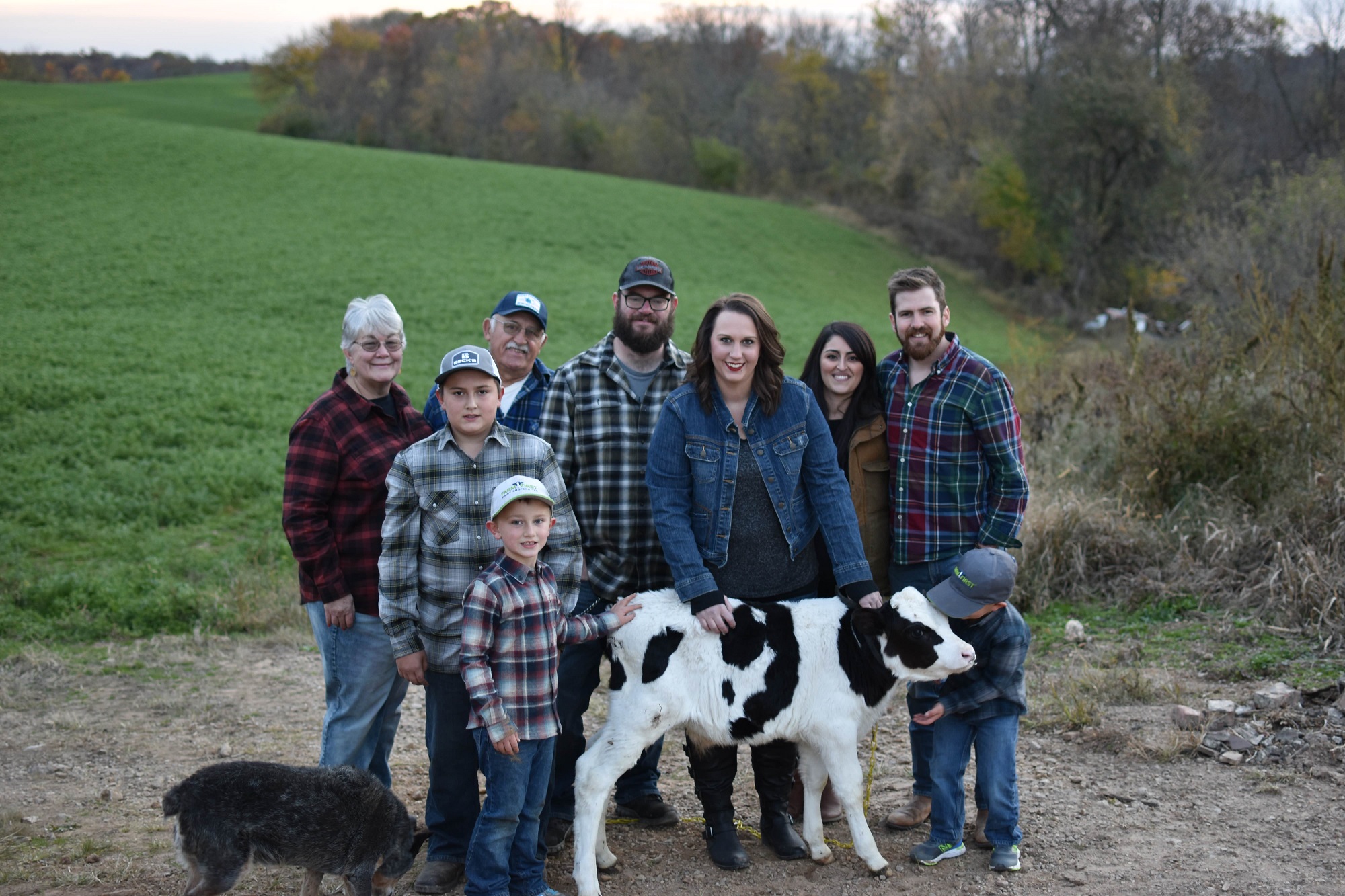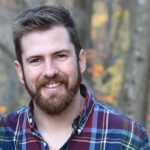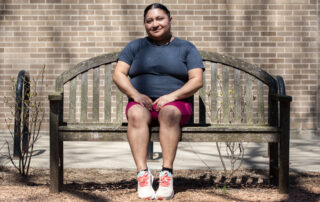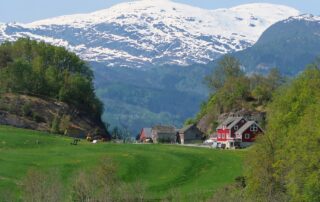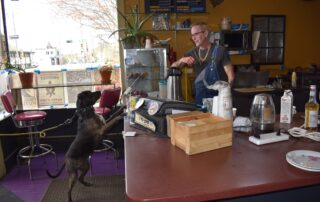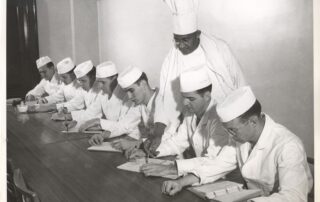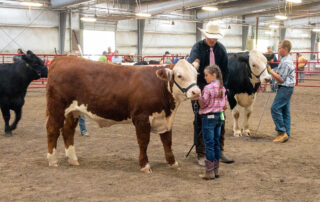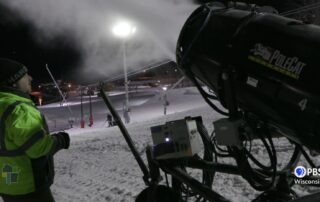Most people will never see a farm like the one I grew up on. But you don’t just see a farm like ours – you smell it, hear it, and feel it.
Like the sound of the cows coming into the barn for milking, mooing low. It’s one of those things – so many, countless things – that sinks deep into your mind, and works its way into your blood and your bones. Until it’s there for good.
At least, that’s how we feel, and also what we hope. Because after more than 100 years of Reisingers dairy farming in rural Sauk County, we’ve decided to sell our cows and look for life after milking – not only for our family, but for our farm too. It’s been a long road, and it’ll be longer still to survive.
“I started milking cows when I was probably 8 years old,” my 69-year-old dad, Jim, remembered as we walked the farm recently. “My dad fell off of a corn crib out here, and that’s when I got interested in farming because my dad needed help.”
My grandpa broke his back that day, and my dad carried on. It’s the kind of story that makes it seem like family farms can stand forever – against economic downturns, industry consolidation, and global market trends that long ago left us behind.
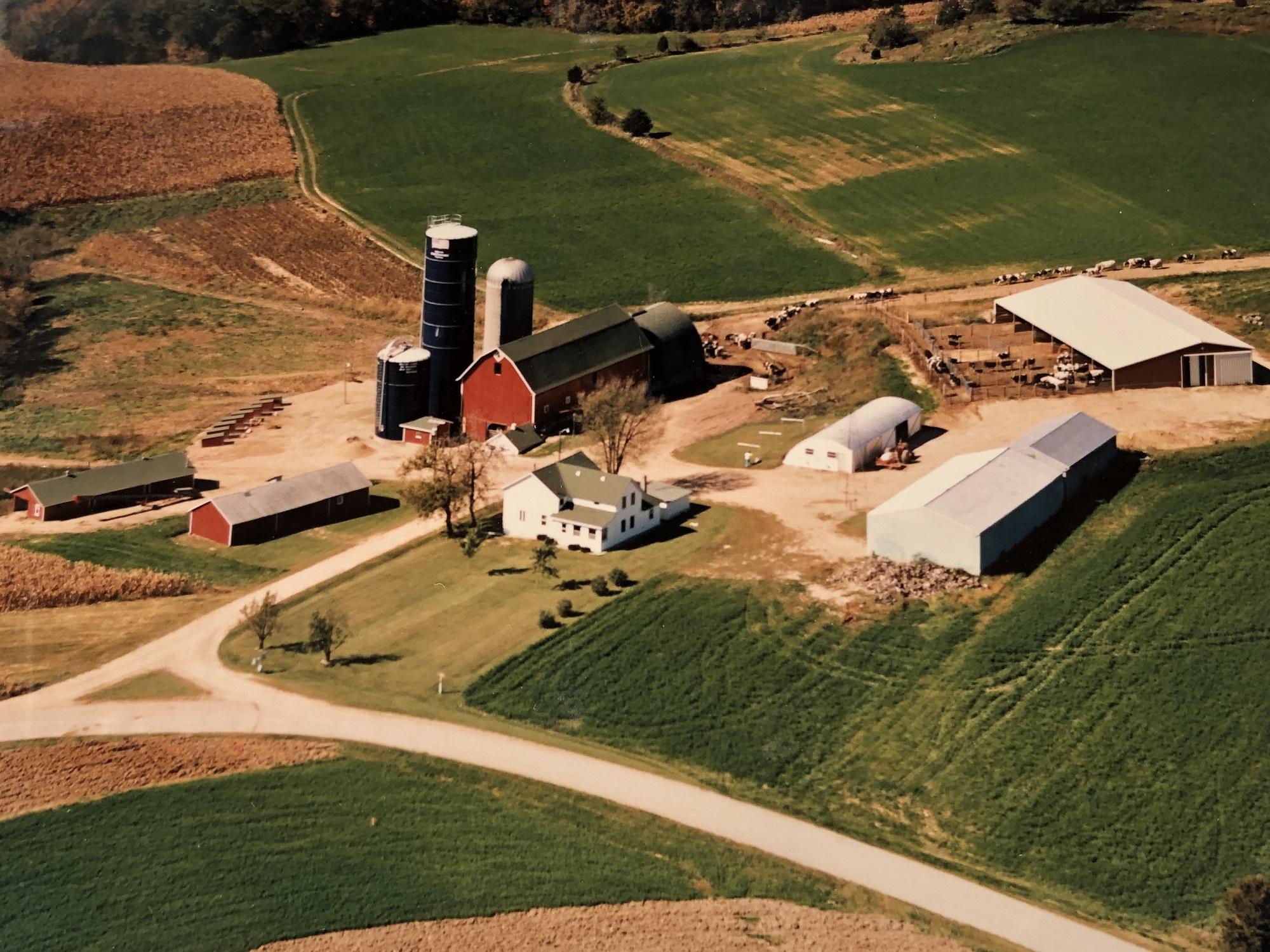
Reisinger Hilltop Farms, LLC in the 1980s, when the author was a kid and his dad was hitting his stride as the owner of a small but growing operation. (Courtesy of Brian Reisinger)
“Dairy Cows Are Like Working Moms”
For years now, it’s been my dad and sister, Malia, farming – although my mom and I took our turns, too. Whenever I watch Malia prep for milking in the milkhouse just off our barn with the milker pump blaring, I’m reminded how she is cut out for farming in a way I wasn’t.
When the temperature dropped below freezing this winter, she was 7 months pregnant – and still milking. She talks about our cows like they’re people she knows.
“Dairy cows are like working moms. So they go to work, they have to pump,” Malia said during one of our last milkings. “A beef cow is more like a stay-at-home mom that just takes care of her kids.”
The original homestead became a Century Farm in 2012. Our sturdy, 50-cow barn was big years ago, but we’re crowded out now by bigger milking parlors – some family-owned, some corporate.
Milking helped my great-grandparents climb out of the Depression, and my grandparents and parents provide a better life for their children. My sister and I, and her kids, mark five generations on this land.
But things are different now. Since the 1970s – when my dad bought the farm from my grandpa – America lost nearly 85 percent of its farms with milk cows, according to the U.S. Department of Agriculture, including more than two registered herds per day in recent years in Wisconsin alone. Many were bankruptcies, or sales where there were few good choices and the family also lost their land.
Our best hope was to sell one part of our way of life, to save the rest of it.

The author’s dad, Jim Reisinger, driving tractor as a boy with his brother at his side and his own father on the hay wagon.(Courtesy of Brian Reisinger)
Saving Our Way Of Life
We planned for more than a year, searching for a way to survive as other farms got bigger or disappeared. It wasn’t easy.
A farm is more than your job – it’s your family, your community, and your heritage. That’s why they call it a way of life. My dad milked twice a day for more than 60 years, 10 years longer than his own dad.
But the simple fact is, dairy farming is too hard financially and physically as my dad gets older – we saw that after years of breaking even, we needed to find a long-term path to keep our farm in the family and fund my parents’ retirement. There is no 401(k) when you’re a farmer.
But we all have our own reasons. My mom, who has fought for dairy with Farm First Co-Op, feels the economics are too tough. My sister wanted to find a way to keep farming that could work with four kids, too young to be in the barn with her morning and night. I felt the farm needed to evolve. But as the first eldest son in four generations not to farm, I’ll always wonder whether we’d have made different decisions 20 years ago to let us keep milking, if I’d pursued a career in farming instead of writing.
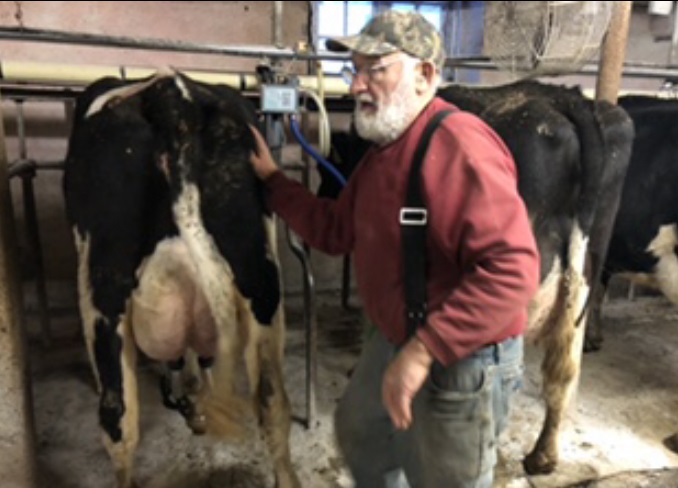
The author’s 69-year-old dad, Jim Reisinger, milking cows in the final weeks before the family sold their dairy herd. (Courtesy of Brian Reisinger)
We all have that – times we wonder if things could have been different. My dad would have held on forever if a serious case of COVID-19 hadn’t put him in the hospital. It literally took a global pandemic to stop him.
“I did this all my life,” my dad said. “That COVID, that really hit me hard, I know I can’t do it anymore.”
We could have gone into debt to go bigger – with a milking parlor or robotic milkers – but our family takes pride in being shoulder to shoulder with our animals. We decided to find a new business model instead, one where a small farm can still be part of the larger Wisconsin farm economy. This year, my dad and sister will try raising heifers for other farms, selling beef, and cash cropping, a transition that’s possible because we had no debt – and accepted reality before it was too late.
We’re grateful for the chance to keep our 400 acres. But it still feels like something was taken from us.
“I Think They Maybe Knew”
A few weeks before the cows went, we got together to milk. My sister’s kids were there, and we talked about old times in the soft yellow light of the barn – all the way back to my Dad and Mom milking as newlyweds.
“We would listen to the ‘Grand Ole Opry,’ and when they would have the dances come on, we’d dance,” my mom, Jean, said. “It slows it down, but it makes us so much happier, and happy farmers make happy cows.”
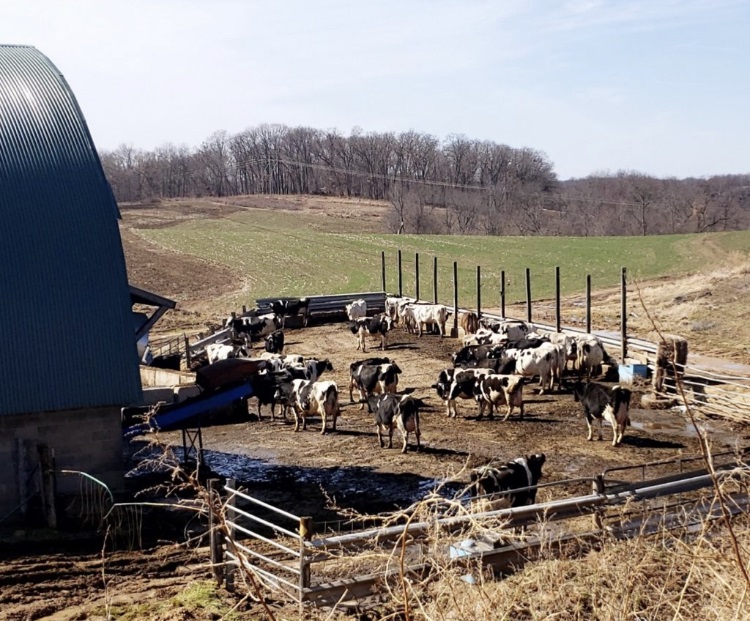
The Reisinger dairy herd the day a cattle buyer came with big trailers to haul them down the road. (Courtesy of Brian Reisinger)
On March 12, 2021, a cattle broker came with big clanging trailers to haul our cows away. I’ll always remember the way the cows kept turning back as we prodded them out the barn. Like they didn’t want to go.
Afterward, my dad walked the farm making videos on his phone – of the last milk draining into a bucket, of the empty barn. He ended near the back barn door where the cows enter each morning and night – now only in our memory.
I asked him about the cows’ last day. They had given him more milk than ever, almost 3,900 pounds.
“I don’t know what got into them,” he said. “I think they maybe knew.”
==
SONG: “Can’t You See” by The Marshall Tucker Band
